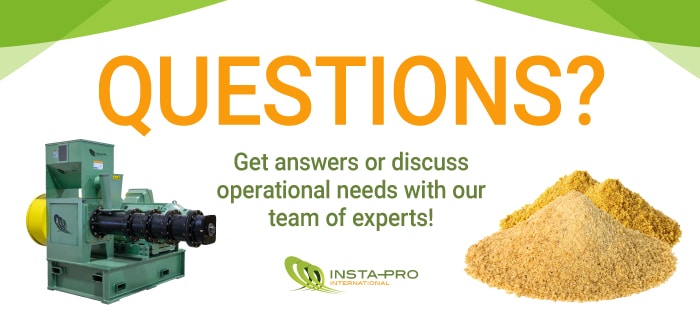Non-GMO Beans: More People Are Talking

We attended the Soy and Grain Trade Summit in September and found the industry to be very active with many developments. One area that seemed to be a popular topic is the growing discussion around Non-Genetically Modified Organisms (Non-GMO) food and feed. I am not taking a position on the debate between Non-GMO versus GMO, but I am pointing out that this issue is not going away and in fact may be trending toward this niche. My comments will be driven around soybeans and how this may create opportunities for our soy processors around the world.
First of all, it truly is still a niche in the U.S. today where 95% of beans produced are GMO and 5% are Non-GMO. So while the large processors will continue to focus on GMO, it creates a growth opportunity for our processors utilizing our equipment. Internationally that story changes where there are more laws requiring Non-GMO. For example, the European Union has taken a strong stance against GMO.
Even in the U.S. though, movement toward Non-GMO may be a reality. In California’s General Election ballot November 6, 2012, there is Proposition 37 up for vote which would require food processors to define the % of GMO ingredients on the food label. Specifics of this potential new California law are below:
- Requires labeling on raw or processed food offered for sale to consumers if made from plants or animals with genetic material changed in specific ways.
- Prohibits labeling or advertising such food, or other processed food, as “natural.”
At the summit, the publication The Organic and Non-GMO Report was handed out speaking to this market whether it is processors, farmers or end product food or feed. In this issue, articles about Proposition 37, animal studies regarding Non-GMO vs. GMO and other topics were included. If you are interested in keeping an eye on this Non-GMO market, I recommend this publication.
Whether Proposition 37 is approved or not, this niche is not going away and in many countries it truly is not a niche but a market requirement. Producers are recognizing this too as I spoke to a U.S. state organizer pushing farmers to produce the unique Non-GMO soybeans and looking to encourage local processors with our equipment to support these farmer’s production. These industry developments are great opportunities for our small to medium-sized processors. There are plenty of segments in the marketplace that differentiate you as a supplier of unique ingredients. And Non-GMO certainly should be in this discussion.
The beauty of the mechanical extrusion cooking and pressing is it is a natural process without the use of chemicals. This technology is a perfect fit for those who want to stay Non-GMO, organic or “natural”. These are not just buzz words, but real market niches that our processors can capitalize on.



